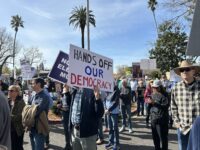Many people feel that politics is a bore and during most days, such people don’t think about politics at all; it’s just not that important to them. They get up and go to work to pay the bills for food, clothing and shelter, and as time permits, seek entertainment. Except as presented to them on fictional television dramas, politics is a remote and distant world all its own, kind of like big business; entities competing for supremacy over others by gaining control over the levers of power and by generating a lot of money. Fact is, money supports the business of politics: the consultants, lobbyists, image-makers, fundraisers and fix-it guys.
The business of politics attracts a wide range of characters ranging from steadfastly high-minded to shamelessly self-serving. Politicians vary widely in style, modes of communication, age and gender. All, in some sense, are theatrical, having donned the attire of office or with aspirations to do so. Successful political theatre, however, requires that it not be boring. To reach the very largest audience, today’s political theatre requires entertaining people.
Entertainment currently manifests as the diversion of human attention towards an opportunity to try to sell something and the entertainment revenue model is predicated on capturing eyeballs, or in other words, ratings. The higher the ratings, the higher the advertising rates that are charged to businesses with something to sell. Accordingly, newspapers have always tried to make politics entertaining, and radio, TV, Hollywood, the Internet and the like invest heavily in politics as entertainment.
Most people, of course, will have little or no direct contact with a big-name politician. By big-name politician we mean the faces and names that end up on the covers of magazines, newspapers, in online posts and on TV. These big-name political stars fuel the political industry.
What’s currently happening in our nation’s capital is history’s most successful example of politics as entertainment. Everyday is a ratings war, counting eyeballs in response to yet another headline-grabbing tweet or off-hand comment. Ironically, the media sitting in judgement also reaps revenues commensurate with increased audience size. News is disappearing; entertainment is how we communicate in the 21st century. The business of politics wants to capture more eyeballs, and is constantly expanding its methods to do so.
Thus the nature of entertainment itself has become self-adjusting through the information/data-stream of social networking. This massive, real-time feedback technology creates a form of perpetual media “day-dreaming”–highly-focused delivery of entertaining information so well-targeted to sets of eyeballs that the dividing line between truth and fiction becomes blurred. Entertainment media doesn’t care; its present challenge is negotiating the cost of throttling the flow of entertainment, ie: the dollar opportunity to offer time to those wanting to sell something to someone.
Political entertainment is merely one of the many entertainment industry segments competing for attention. Sports is a biggie, and “news sources”; they all pander to consumer product companies ceaselessly hawking goods to a captive public through every available media, from digital texting to a succession of seconds-long advertising, twenty-four/seven. These goods include habit-forming caffeine, nicotine, pain killers, anti-depressants, and politicians. To many people politics is just another type of entertainment, essentially another sales pitch. Tragically for democracy, at a fundamental level, that’s entirely correct.






Be First to Comment